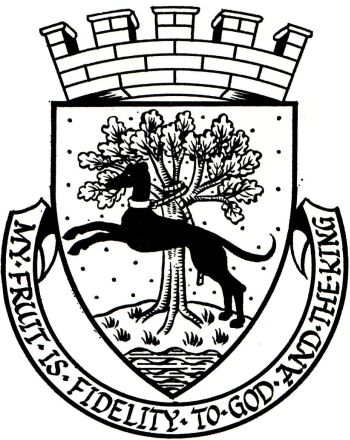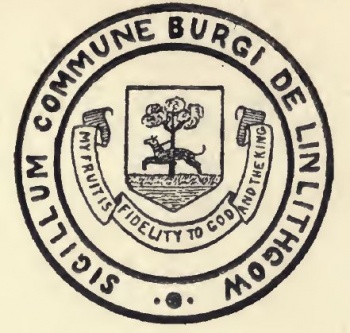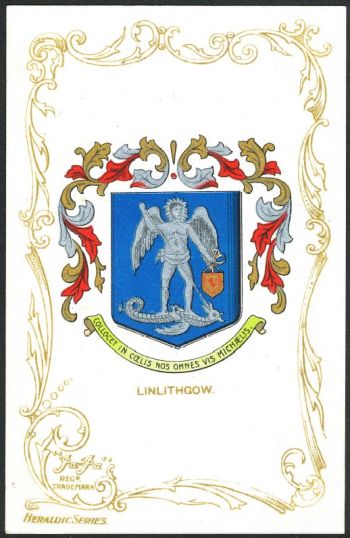Linlithgow
| Heraldry of the World |
| British heraldry portal Civic heraldry of the United Kingdom |
|
LINLITHGOW
Incorporated into : 1975 West Lothian District Council (1996 West Lothian Area Council)
Official blazon
Or, a greyhound bitch Sable, chained to an oak tree within a loch Proper.
(With the Motto "My Fruit is Fidelity to God and the King")
Origin/meaning
The arms were granted on July 16, 1673.
Linlithgow is a Royal Burgh of King David I created about 1138.
The Burgh is one of the four in Scotland with two coats of arms matriculated in the Lyon Register. The coat commonly used until 1975 is the second one, which shows the celebrated black bitch of Linlithgow chained to an oak tree standing on a mound in Linlithgow Loch.
The tree represents the former Royal Forest and the black bitch may also be connected with the chase; it may also recall one of the possible meanings of Linlithgow, "the lake of the grey dog".
Associated with this coat of arms, by long tradition, is the motto "My fruit is fidelity to God and the King"; although this is not recorded in the Lyon Office, it can be accepted as authentic.
The first coat shows St. Michael the Archangel killing the dragon; he holds a shield bearing the Scottish Royal Arms because the Burgh has had many links with the Royal Family, of which Linlithgow Palace was a favourite residence from the fourteenth century.
The Latin motto means "Michael's strength sets us all in heaven".
The Burgh uses both coats of arms with burghal coronets.
| Seal of the burgh as used in the 1890s |
The arms as used on a JaJa postcard +/- 1905 |
Contact and Support
Partners:
Your logo here ?
Contact us
© since 1995, Heraldry of the World, Ralf Hartemink 
Index of the site
Literature : Porteous, 1906; Urquhart, 1974














